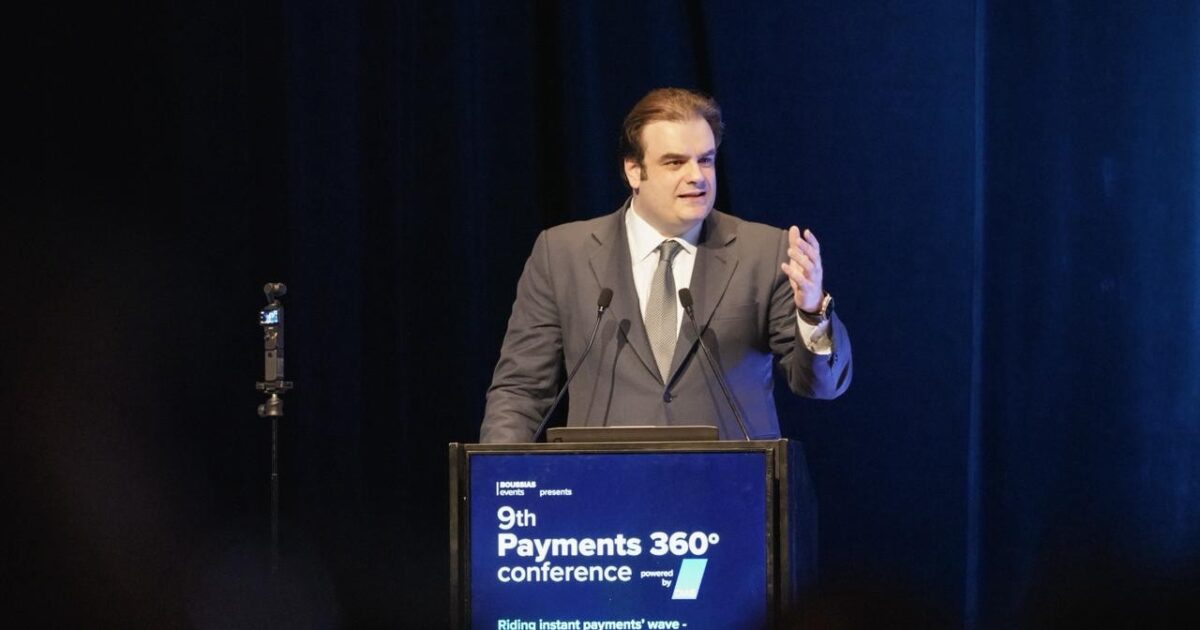The doubling of boundaries trading with IRIS The Minister of Finance Kyriakos Pierrakakis announced today (11.6.2025) from the step of the 9th conference 360 Payments of DIAS.
In particular, as the Minister announced, by agreement between the banks and DIAS, the two distinct credit limits between natural persons (P2P) and to pay free professional and individual businesses (P2B) are doubled by the end of the year. “We believe deeply in this project, we are reinforcing it and still supporting it further,” Mr Pierrakakis said, stating that “by the end of the year IRIS are doubled in 1,000 euros for P2P transactions and 1,000 euros for P2B transactions. With a monthly cumulative threshold, which amounts to EUR 5,000, for transfers between natural persons. For commercial transactions the status is maintained without limits. “
The minister described the DIAS direct IRIS system as a “national champion” and recalled that transactions between individuals are free and transactions to individual businesses and freelancers, with a very low charge.
He also added that from 1 November it is mandatory to integrate Iris Payments into POS through the use of QR Code, while in the new Customs Code “there will be a framework for consequences for those who will not implement IRIS on POS, obviously precisely because when we say that something will be true.”
Mr Pierrakakis also stressed that soon the Greek IRIS payment system will be included in the European EUROPA Project Initiative. “An initiative of 10 countries that integrate their own IRIS and their own national platforms into a single platform and with the addition of Greek users, where it will pass 100 million users, will go about 105 million users,” he said.
Mr. Pierrakakis made a special mention of the need for Europe’s domination in the field of payments and talked about the digital euro, “one of the issues that are particularly concerned with this period, along with international trade and duties”.
Concerning the penetration of Iris into the daily lives of citizens and businesses, the minister stressed that “Iris Payments is very simple to use. It is very easy to activate and use it. You only need the recipient’s mobile phone number. It has a high degree of use as it already has 3.8 million registered users (P2P) and is expected to exceed 4 million users in the coming period. At the same time, IRIS are registered over 565,000 registered professionals (P2B). Transfer is immediately and free of charge between individuals, and there are small charges for freelancers when they receive payments. It is also extremely safe, as transactions are carried out in the safe environment of bank mobile banking and using biometric data, ”he said.
Digital transformation and decrease in tax evasion
The Minister made a detailed report on the link between the country’s digital transformation- whose core are also the digital payments- with the reduction of tax evasion and the economy.
He specifically said: “We have mainly conquered two things. The first is the country’s major fiscal conquests. The second is the digital transformation of the state. That is, the fact that a country considered bureaucratic has managed to digitize 2,000 services. Through the digital transformation we were able to catch a piece of tax evasion and significantly reduce the economy. Especially for the economy, the years of the financial crisis we thought it was somewhere at 35% to 40% of GDP. The IMF’s last bulletin placed it at 16% and this is three years older than today. Today we may have reached a single -digit. This is not to say that we still do not have too many things that we need to conquer in terms of tax evasion or reducing the so -called VAT vacuum. But it means that something is done correctly. And digital payments have succeeded in doing so. It is, if you will, the core of this transformation. And, in this sense, we believe very much in their penetration into the economy as a whole. “
Indicative of the contribution of electronic payments to reduction of tax evasion are the elements of AADE.
As the Minister pointed out, the increase in electronic payments by € 7.5 billion in 2024 was translated into a reduction in cash use by 5.79 billion euros in the majority of the tertiary sector sectors. Thanks to the highest rate of increasing electronic payments, replacement of 5.79 billion cash with 2024 card payments appears to contribute an additional EUR 388 million VAT revenue. “It is therefore proved by the 2024 VAT certificate data that the full operation of the POS Cash registers interconnection for all the required debtors has contributed substantially to the expansion of the taxable basis,” he said.
